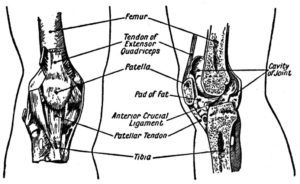By: Kenneth G. Swan, Jr., M.D.
So, you’re 51 years old, otherwise healthy, but your knee’s not feeling right and it’s hurting your golf game. Or, you’re 63, a little over weight, and you’d like to “get back in shape,” but your knee pain stops you from working out, even from going on neighborhood walks. Perhaps, you were “fine,” until your 70-year-old knee “blew up” on you after an otherwise minor twist or fall…
The stories may differ, but the diagnosis is often the same: Your x-ray shows mild arthritis and your MRI shows a meniscus tear. You may ask, “How did I tear my meniscus, I didn’t do anything?” or “It can’t be the arthritis, my knee was fine two weeks ago!”… and now it’s KILLING me!”
To review, osteoarthritis (the most common type of arthritis) is a degenerative condition, where the smooth cartilage inside a joint erodes, causing an irregular, rough surface. “Bone on bone” disease is the end result, often requiring knee replacement surgery. Until then, however, the joint may be stiff, swollen, painful, unstable, and unpredictable. It may feel fine at times, or can be quite painful, despite only “mild” arthritis.
The meniscus is the shock absorber in the knee joint, between the bones. Meniscus tears can occur in the young athletic population; for instance, an injury to a college lacrosse player. In these patients, surgery is required, typically to try to repair the tear. This is different than the middle-aged patient, where meniscus tears are usually degenerative in nature — meaning it’s part of the aging process. Many experts believe meniscus tears simply to be part of the arthritis process.
So, back to your knee: Your knee is painful and might be swollen. It may hurt to squat or pivot. It’s been bothering you for several weeks and won’t seem to get better. Doc says you have arthritis. Many patients find it hard to believe arthritis can give them such pain—they think arthritis is just something you live with as you age, sort of like grandma’s stiff back and hands. But it can be quite painful when it first acts up, especially in the middle-aged patient, who is still working out, or working on their feet every day…..
The MRI shows a meniscus tear. So both patient and doctor may jump to the conclusion that the meniscus is the problem, and therefore surgery (a knee arthroscopy) is the solution…..However, one needs to know that degenerative meniscus tears are VERY COMMON, with greater than one-third of our population over age 50 having a meniscus tear. In patients with known knee arthritis, the rate is even higher: 75 percent of these patients have a meniscus tear. But, and this is VERY IMPORTANT: the majorty of patients do not have ANY symptoms! We know this from MRI research studies on patients who were symptom-free.
So, if the majority of patients with meniscus tears don’t even know they have them, is it reasonable to say that meniscus tears don’t need surgery when we first discover them? The simple answer is YES! People do NOT need to rush into surgery for a meniscus tear. In fact, often surgery can put off indefinitely.
Recent research studies have shown that middle-aged patients with meniscus tears can be successfully treated without surgery. Similar to patients with arthritis, a combination of physical therapy, over-the-counter medications, injections and bracing can be a very effective treatment strategy for meniscus tears. The tears do not heal (and the arthritis doesn’t go away), but the symptoms often do. In fact, these studies show that knee arthroscopy surgery (a “knee scope”) should not be the first line of treatment for meniscus tears. Good research has changed how we as doctors approach meniscus tears. Knee arthroscopy can be effective for those patients who do not improve with non-operative measures, but it is no longer the first or only option.
Being middle-aged does not have to mean you’re going downhill. Degenerative conditions do start to pop up, but they can be countered with the right exercise, diet and activity regimen. Talk to your orthopaedic surgeon to help get you back in the game, often without surgery!
Board certified in Orthopaedic Surgery and Sports Medicine Kenneth Swan, Jr., M.D., is medical director of Hackensack Meridian Health Raritan Bay Medical Center’s Human Motion Institute. The institute is a comprehensive musculoskeletal program dedicated to returning patients to normal activities quickly and safely, with help from a nurse navigator who guides patients and their families through surgical care. Dr. Swan has an office at 516 Lawrie St., Perth Amboy, NJ. To make an appointment, call 855-5-MOTION.








